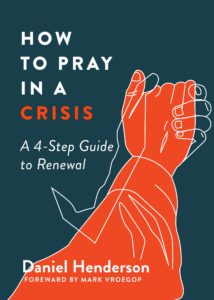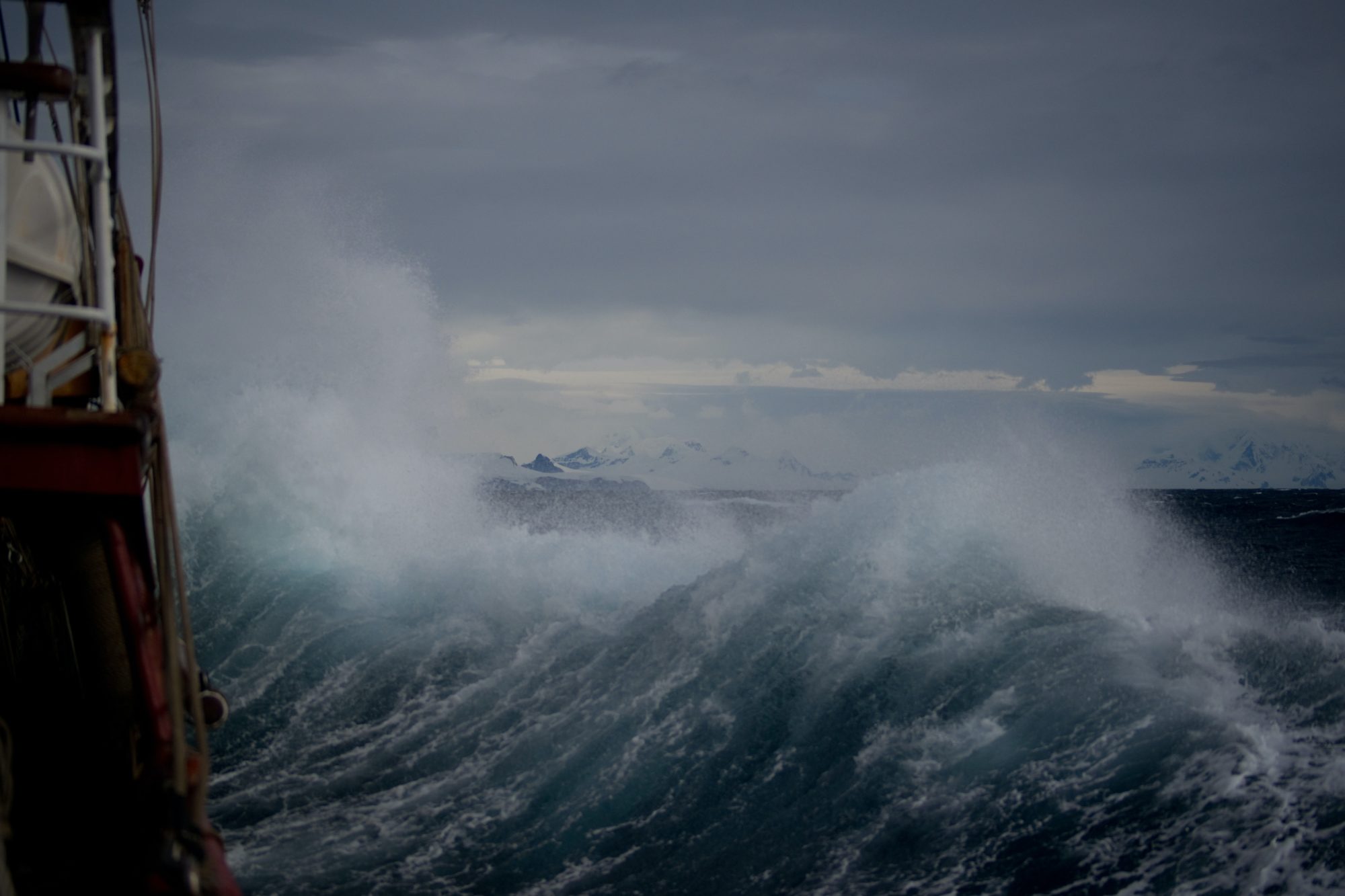Why God Allows Storms in Your Life
If you are not in a storm today it is likely you were yesterday. And, if not, there is probably one approaching in the near future. Just like the realm of nature, human experience can benefit from the rain, snow, wind, and subsequent calm of temporary storms. God’s desire is not to destroy us in the storms of life but to develop a deeper faith and fruitfulness for His glory.
God’s desire is not to destroy us in the storms of life but to develop a deeper faith and fruitfulness for His glory.
Sent Into a Storm?
In Matthew 14 we find the story of Jesus having compassion on the multitudes, healing their sick and teaching them many things. As the day draws to a close, He miraculously feeds 5,000 men, plus the women and children, using only five loaves and two fish. Then the account reads, “Immediately Jesus made the disciples get into the boat and go on ahead of him to the other side, while he dismissed the crowd. After he had dismissed them, he went up on a mountainside by himself to pray. When evening came, he was there alone” (Matthew 14:22&23).
On one hand, we see another amazing snapshot of Christ’s model of prayer and intimacy with the Father. The text indicates that He began praying around sundown and continued in prayer until at least 3 a.m. (the fourth watch). The Lord Jesus is our ultimate model of humble reliance on the Father. Foundationally, we pray because He prayed. After this extended experience of spiritual communion, Jesus appeared to His disciples by walking on the water past their wave-tossed boat in the midst of a terrible storm.
The Lord Jesus is our ultimate model of humble reliance on the Father. Foundationally, we pray because He prayed.
There were other times when He invited some of them to pray with Him or at least stay nearby as He prayed (Luke 9:28; Mark 14:33-35; Luke 11:1). But on this particular evening He made a different choice with the disciples. We might wonder why?
Reasons for the Storm
Perhaps Jesus simply wanted alone time with the Father, which would make sense. But the text clearly states that He intentionally sent them onto the lake. He knew the storm would arise. There must have been specific reasons related to the disciples that prompted Jesus to send them away rather than join Him to pray. Several ideas emerge at this point:
1. They probably would have slept rather than prayed. Earlier in the day, they had returned from a grueling ministry assignment. They had been so busy they did not even have time to eat and Jesus invited them to come apart to a quiet place. Instead, they were interrupted by the crowds and the feeding of the 5,000 ensued. Surely, Jesus knew they were tired; perhaps too tired to pray.
2. They were not in the proper “frame of faith” to pray. When the writer Mark speaks of this incident, he writes of the disciples, “for they had not understood the loaves; their hearts were hardened” (Mark 6:52). Even after the miracle feeding, they were not in the place of faith that the Lord desired. Our hearts can fail to perceive and maximize the lessons embedded in the Lord’s obvious work our lives. Storms can force our faith deeper and cause us to be more teachable in our walk with Him.
Our hearts can fail to perceive and maximize the lessons embedded in the Lord’s obvious work our lives. Storms can force our faith deeper and cause us to be more teachable in our walk with Him.
3. They experienced a powerful lesson about focus. In Matthew’s account, we see the familiar incident of Peter needing reassurance and then desiring to go to Jesus on the water. When Peter took his eyes off Jesus, instead focusing on the storm, he began to sink and cried out for rescue. Jesus rebuked him, “O you of little faith, why did you doubt?” (Matt. 14:28-31) In the midst of our storms we must resolve to keep our eyes on Jesus, looking past the tumult to give greater attention to the One more powerful than the storm. This is the pathway to more resolute focus and more robust faith.
In the midst of our storms we must resolve to keep our eyes on Jesus, looking past the tumult to give greater attention to the One more powerful than the storm. This is the pathway to more resolute focus and more robust faith.
4. They needed a greater revelation of Christ. That night on the sea created a desperation in the hearts of the disciples. The appearance of Jesus on the water struck holy fear in their hearts. Jesus called these shaken disciples to embrace His divinity in His declaration, “Take courage! It is I (literally, ‘I Am’). Don’t be afraid” (Matthew 14:27). His power to calm the wind and the waves caused them to fall on their faces in worship and declare, “Truly you are the Son of God” (Matthew 14:33). Perhaps the only thing more awe-inspiring than Jesus outside the boat in the midst of the tempest is Jesus inside the boat after He has triumphed over the storm.
Perhaps the only thing more awe-inspiring than Jesus outside the boat in the midst of the tempest is Jesus inside the boat after He has triumphed over the storm.
______________________________________________________________________________________________________

Have you secured your copy of one of our newest resources, How to Pray in a Crisis: A 4-Step Guide to Renewal? This small book will help you gain perspective and prepare your heart for a fresh work of the Spirit and a deeper faith in the midst of your storms. You can order yours today HERE.
______________________________________________________________________________________________________
Lessons About Our Storms
There are some lessons in this story for us. May we learn them well.
Storms Disturb Our Slumber
First, Jesus still invites His followers to pray. He wants us to seek His face. He wants His church to be a house of prayer. Many times we join Him – often sleepy, lacking faith, and without a high, holy, and captivating view of who He is. As He did with the disciples, Jesus allows us to encounter storms that wake us from our faithless doldrums. He uses the storms to stir desperation in our hearts. Until we become desperate, we seldom pray with passion and perseverance.
Jesus allows us to encounter storms that wake us from our faithless doldrums. He uses the storms to stir desperation in our hearts. Until we become desperate, we seldom pray with passion and perseverance.
In moments of desperation we are motivated to a greater biblical revelation of Christ’s character. He wants us to see Him in the greatness of His power and glory. This place of genuine worship is the foundation of life-changing prayer.
In moments of desperation we are motivated to a greater biblical revelation of Christ’s character.
Storms Stimulate Our Seeking
If we are struggling in our prayer lives, we know that the Lord is not content that we neglect our relationship with Him. We also know that He will not just let us go through the motions. Because He loves us, and purposes that we love and know Him through prayer, He will bring storms to make us desperate, that we might gain a fresh vision of His majesty, and pray in a transforming fashion for His glory.
Storms Prepare Us for Greater Days of Ministry
No doubt, all of the experiences the disciples knew as they journeyed with Jesus helped prepare them to lead the church and “turn the world upside down” with the gospel message. I can’t help but believe that this experience on a stormy lake compelled them to be diligent in their praying in the Upper Room of Acts 1 and certainly thereafter following the impartation of the Spirit in Acts 2. We can be assured that God never wastes a storm and intends to use the lessons of our darkest moments to grow our faith for greater days of God-dependent, spiritually-fruitful, and Christ-exalting ministry.
We can be assured that God never wastes a storm and intends to use the lessons of our darkest moments to grow our faith for greater days of God-dependent, spiritually-fruitful, and Christ-exalting ministry.
Copyright © 2021 Daniel Henderson. All rights reserved.



